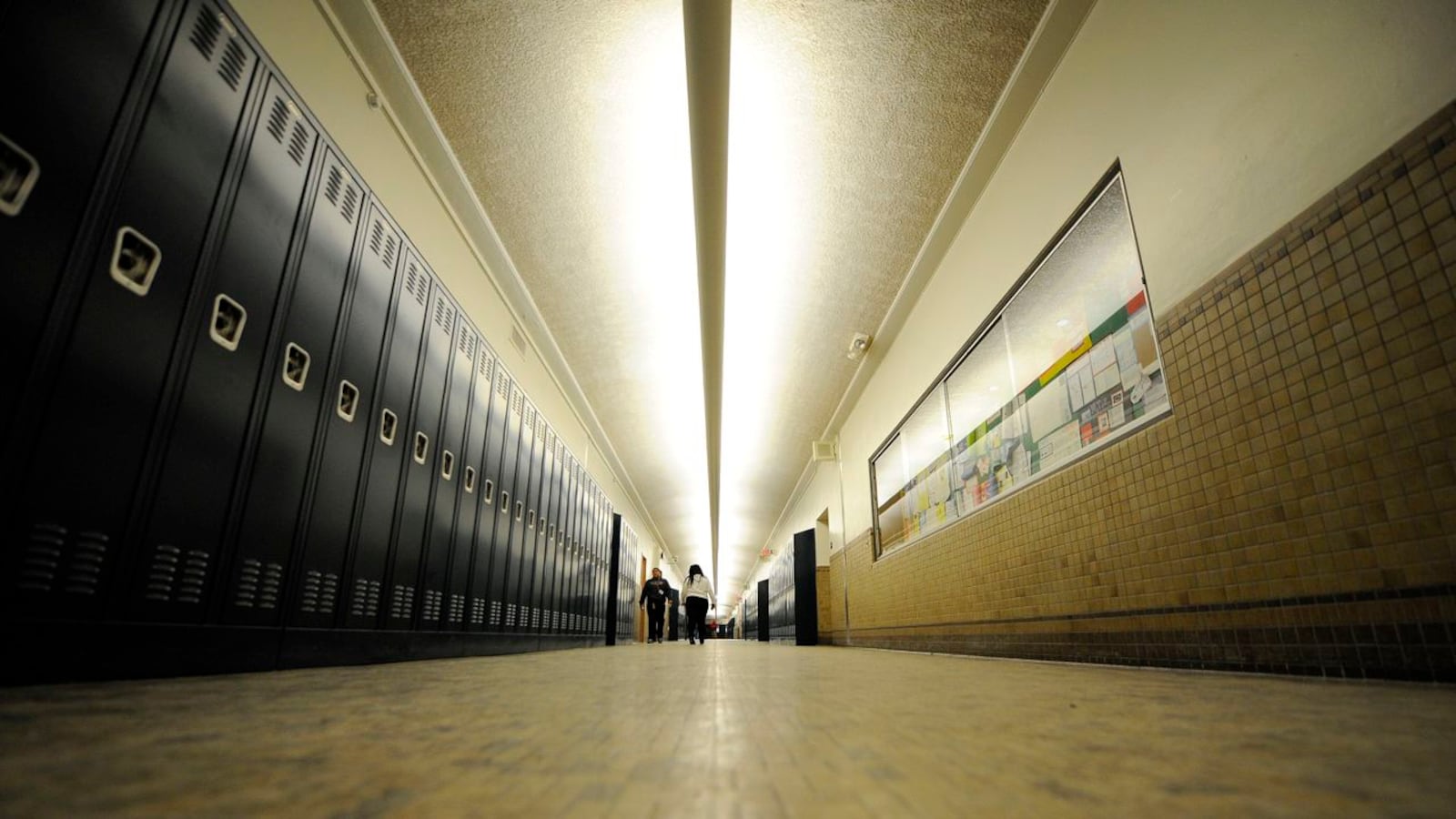When education officials announced last October that suspensions plummeted 46 percent over the last five years, they touted the news as evidence that major changes to the city’s discipline policy were taking hold.
But that data has sparked debate among educators and advocates of school discipline reform. Does the drop in suspensions mean that schools are creating richer learning environments where students — especially those of color and with disabilities — are less likely to be removed for minor misbehavior? Or are educators responding to pressure to look the other way instead of issuing suspensions, making schools less orderly in the process?
New evidence presented Tuesday by the conservative-leaning Manhattan Institute may help answer those questions. The report shows that after Mayor Bill de Blasio’s 2015 school discipline reforms went into effect, which made it harder for schools to suspend students, perceptions of school climate took a big hit.
That conclusion is based on annual school survey data collected by the city during a five-year timeframe: The tail end of the Bloomberg administration, and the first two years of the de Blasio administration. Both of those periods saw similar size reductions in the number of suspensions handed out, but student and teacher reports of school climate — including fights, respect among peers, and drug and alcohol activity — worsened under de Blasio.
“Overall, the pattern is consistent and unmistakable: School climate remained relatively steady under Bloomberg’s discipline reforms but has deteriorated rapidly under de Blasio’s,” according to Max Eden, the report’s author.
Of roughly 1,000 middle and high schools included in the survey data, nearly 44 percent had a larger share of students report more frequent fighting as de Blasio’s discipline reforms rolled out, compared with 25 percent in Bloomberg’s final years.
About 52 percent of the schools surveyed during the de Blasio era reported a decline in the percentage of students who said their peers respect each other, compared with 25 percent at the end of Bloomberg’s tenure.
A higher proportion of teachers at nearly 40 percent of elementary, middle and high schools responded negatively when asked if order is maintained in their schools — about six percent higher than during the last two years of the Bloomberg administration.
And middle and high schools that serve higher proportions of low-income students and those of color were more likely to see their school climate worsen.
Those findings come with some important caveats: Because the city significantly changed its annual survey, only five “school order” questions were similar enough to use across administrations, limiting the picture of how changes in discipline policy are playing out. And multiple school discipline experts said there wasn’t enough evidence to imply that reductions in suspensions were to blame for worsening perceptions of school climate, a point the report acknowledges.
“There could be a million other explanations” said David Kirkland, executive director of New York University’s Metropolitan Center, who added that “the report suggests we need to look at this data more seriously.”
Kirkland, who studies school discipline, stressed that it is important for policymakers to weigh the benefits of reducing suspensions — not simply its costs — including the likelihood that higher-need students may graduate at higher rates or show other academic gains if they aren’t removed from the classroom.
Still, he acknowledged that teacher and student perceptions are important, and may reveal that educators have not been adequately prepared to replace suspensions with “restorative” approaches that favor dialogue and reflection over student removal. The teacher’s union has made a version of that argument — and some educators have said the transition away from suspensions can be challenging.
“I concede the point that maybe we need to roll out the policies in a different way that doesn’t produce backlash,” Kirkland added. “What this evidence suggests is that we need to do more than just reduce suspensions.”
City officials did not dispute the report’s findings — though they noted that the vast majority of students reported feeling safe in their classrooms. “Research shows that overly punitive disciplinary practices are not effective,” mayoral spokeswoman Freddi Goldstein wrote in a statement. “Our investments in mental health and school climate programs ensure students are provided with a safe and supportive learning environment and that they are being held accountable for their actions.”

